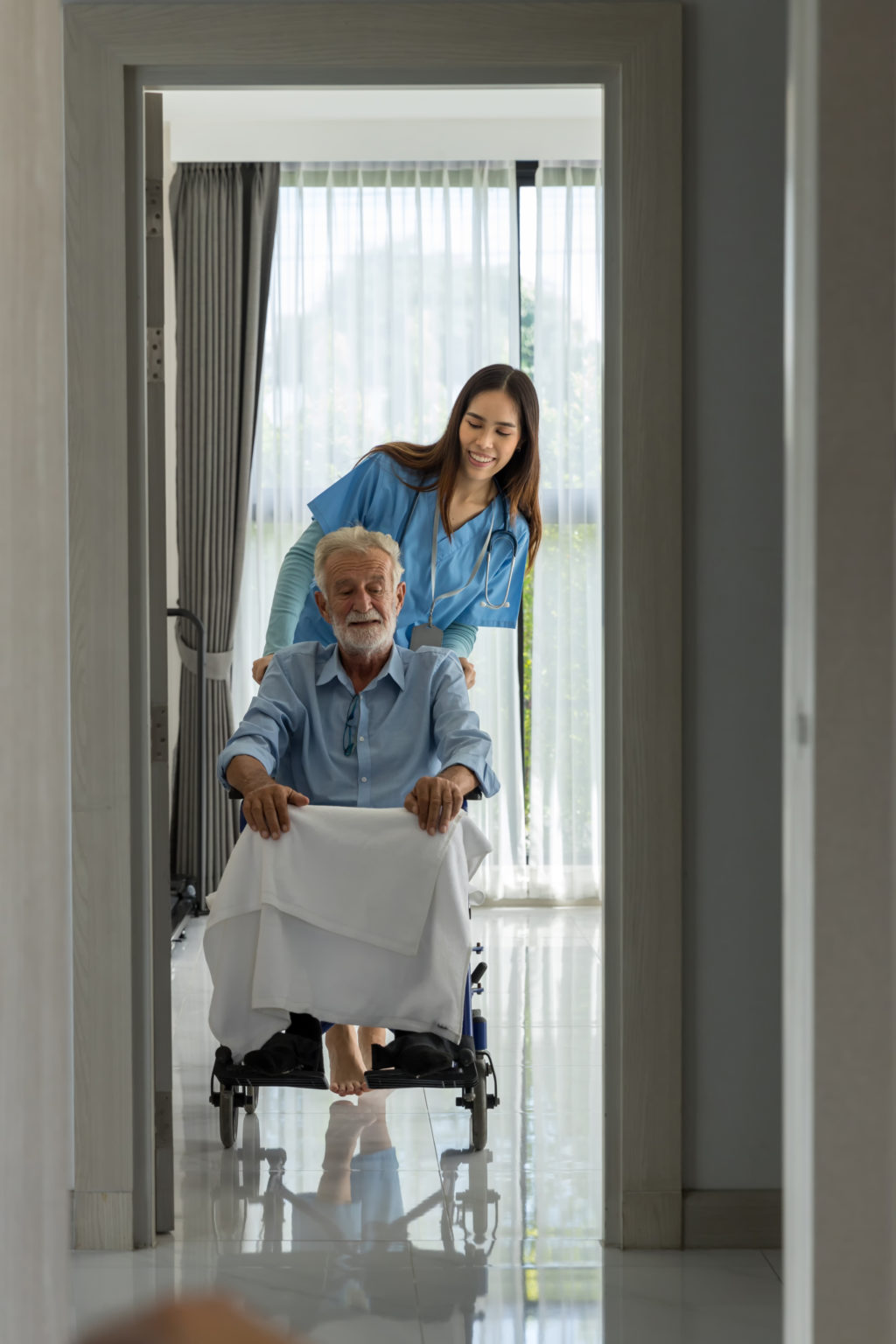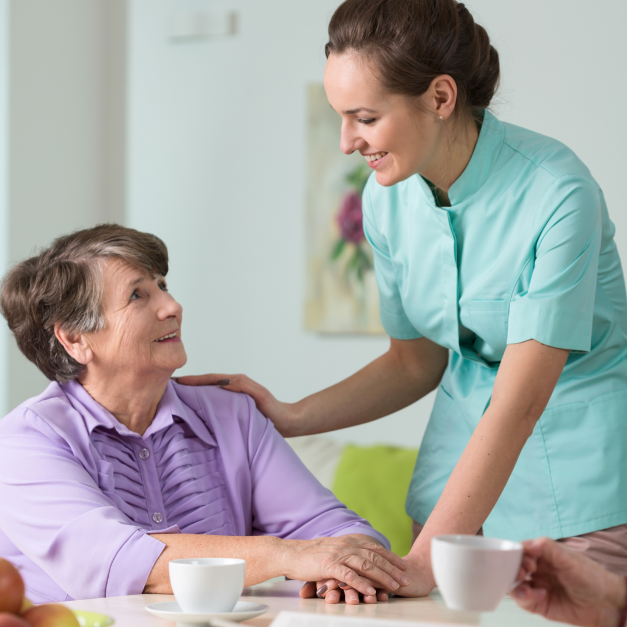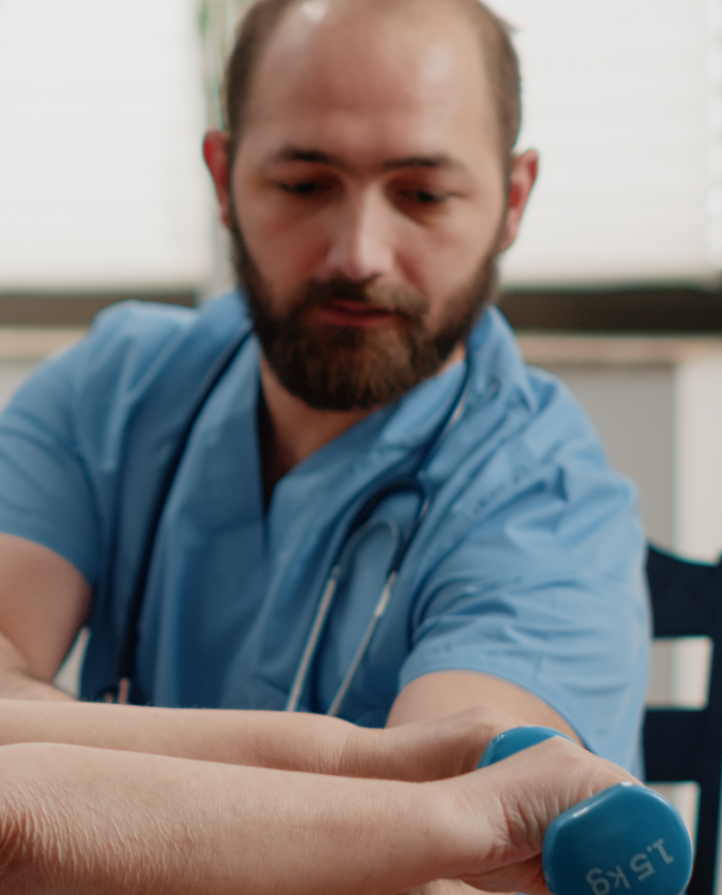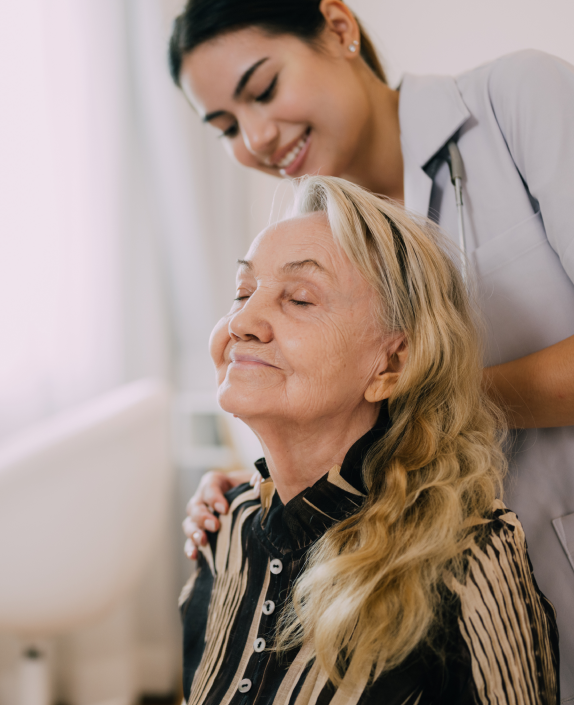Personal Care Services Definition
Personal care services are hands-on services that help people with important daily tasks they can't do independently. These services, which are often called "Instrumental Activities of Daily Life" (IADLs) or Activities of Daily Living" (ADLs), are usually enough for a person to stay in their own home instead of moving to assisted living or a nursing home.
Personal Care Assistants
These are the people who help people with personal care. There are three main types of people who help with personal care:
- Family care Provider: Depending on the level of care needed, sons, daughters, and spouses can often manage and provide services independently.
- Private Care Providers: These are some health aids or personal care assistants who do not work for an agency.
- Personal Care Agencies: Agencies like Family Choice Healthcare hire personal care assistants who are all licensed, trained, and checked out.

What Tasks Does Companionship Include?
Daily Home Care Provides older adults with 24-hour, around-the-clock care.
Personal in-home care is a cost-effective alternative to medical live-in facilities and allows seniors to maintain their independence and quality of life in familiar surroundings. Research shows that 90% of seniors prefer to age in place, with 42% citing the ability to live under their own rules as a key reason for choosing in-home care over senior facilities.
We are here to help when you need us
On-call 24 hours for client needs
Flexible and fast scheduling
Regular quality assurance
Thorough care management and family support
Double the care team staff of other agencies
Types Of Personal Care
Doctor care
A doctor can meet patients at Home to diagnose and treat disease (ES). He can also examine the home health care needs from time to time.
Nursing care
The most common form of domestic health care is nursing care, depending on the person's needs. A registered nurse will plan to take care of the doctor. Nursing care may include wound dressing, ostium care, nausea therapy, medicine management, the patient's general health, pain control, and other health support.

Physical, occupational, and speech therapy
After getting sick or hurt, some patients may need help relearning how to do daily tasks or improving their speech. A physical therapist can make a care plan to help people use their muscles and joints again or get stronger. An occupational therapist can help a person with a physical, developmental, social, or emotional disability learn how to do things like eating, bathing, dressing, and more that they may have forgotten how to do. The therapist can help a person who has lost their ability to speak.
Medical social services
Medical social workers help patients in many ways, like counseling them and finding community resources to help them get better. Some social workers are case managers, especially if the patient's health is complicated and needs many services to coordinate.


Care from home health aides
Home health aides (HHA) can help the patient with things like getting out of bed, walking, taking a bath, and putting on clothes. Some aides have special training that allows them to help with more complex care under the supervision of a nurse.
Homemaker or basic assistance care
While a patient is getting medical care at Home, a homemaker or other person who helps with chores or tasks can keep the house running by making meals, laundry, shopping for groceries, and other housekeeping tasks..
Companionship
Some patients who live alone may need a friend to comfort them and keep an eye on them. Some companions may also help with chores around the house.

Types of Patients Who May Need Personal Care Include
Patients who are getting better after being sick or accident
Patients who have been sick for a long time (like those with heart failure, diabetes, or HIV/AIDS)
Patients who are weak or who are very old
Patients who are disabled for life
The dying person
Babies whose parents need help taking care of them
The main job of a Home Health Aide or Personal Care Aide is to help with personal care. This is their most important job. Personal care shows the patient that you care about their physical health and well-being in general.
It discusses how important it is to stop the spread of infections and how Home Health Aides (HHA) and Personal Care Aides can help break the chain of diseases to keep patients healthy. It discusses how Home Health Aides and Personal Care Aides can help with bathing, brushing teeth and gums, getting dressed and grooming, going to the bathroom and eating. There is information about moving patients from one position to another and helping them walk. It is talked about how to take care of the baby, including how to hold it, feed it, and bathe it. At last, the five rights of medication self-administration—right patient, right medication, right dose, right route, and right time—are reviewed by Home Health Aides (HHA), who will help people take their medicines.
Types of Patients Who May Need Personal Care Include
Patients who are getting better after being sick or accident
Patients who have been sick for a long time (like those with heart failure, diabetes, or HIV/AIDS)
Patients who are weak or who are very old
Patients who are disabled for life
The dying person
Babies whose parents need help taking care of them
The main job of a Home Health Aide or Personal Care Aide is to help with personal care. This is their most important job. Personal care shows the patient that you care about their physical health and well-being in general.
It discusses how important it is to stop the spread of infections and how Home Health Aides (HHA) and Personal Care Aides can help break the chain of diseases to keep patients healthy. It discusses how Home Health Aides and Personal Care Aides can help with bathing, brushing teeth and gums, getting dressed and grooming, going to the bathroom and eating. There is information about moving patients from one position to another and helping them walk. It is talked about how to take care of the baby, including how to hold it, feed it, and bathe it. At last, the five rights of medication self-administration—right patient, right medication, right dose, right route, and right time—are reviewed by Home Health Aides (HHA), who will help people take their medicines.
Types of Patients Who May Need Personal Care Include
Compared to an assisted living facility or a nursing home, this type of in-home care has several advantages.
Ability to stay at Home. Most seniors would rather be able to remain in their houses for the rest of their lives, especially if they can still get the companionship that personal care services offer. Seniors can often stay safe and comfortable at Home for years as long as they have help with simple tasks.
Lower Cost. Private home care has some costs, but they are usually much lower than assisted living or nursing homes.
Personalized Needs. Personal care attendants can pay attention to what each client needs. Every situation is different; some people may need care 24 hours a day, while others may only need care for an hour or two a day.
Enhanced Quality of Life. We've found that our senior clients who use personal care services have a great quality of life. This is because they can stay in their own homes, keep some independence, and get close to their caregiver.


Obtaining Personal Home Care
Personal care at Home doesn't need a prescription from a doctor, which is different from some other types of care. You can hire a caregiver through From the heart home care agency if you need personal care. We've put together a list of the most important questions you should ask an in-home provider before deciding if this is the right choice.
Personal care plans are tailored to meet the individual needs of clients, providing emotional support, reducing fall risks, and assisting with all activities of daily living. With the flexibility to accommodate clients' needs, whether for a few hours a day or full-time care, personal care ensures adherence to physician-prescribed treatment plans and dietary needs. Additionally, personal caregivers offer sensitive and respectful assistance with bathing and grooming, providing a comfortable and familiar environment for clients in the safety of their own homes.
Bathing, dressing and grooming assistance
Medication reminders and assistance
Assisting with walking and transferring from bed to wheelchair
(if applicable)
Safety and fall prevention measures
Status reporting to the family by request
Toileting and incontinence care
24-hour monitoring after a procedure or hospital stay

Lifestyle support and resources provided
Light housekeeping
Additional disinfecting and sanitizing throughout the home
Meal preparation and feeding
Laundry and change of bed linens when required
Grocery shopping and errands
Pharmacy pick up & drop-offs
Transportation to social and recreational activities
Assistance with light exercise and outdoor activity
Companionship and community engagement
